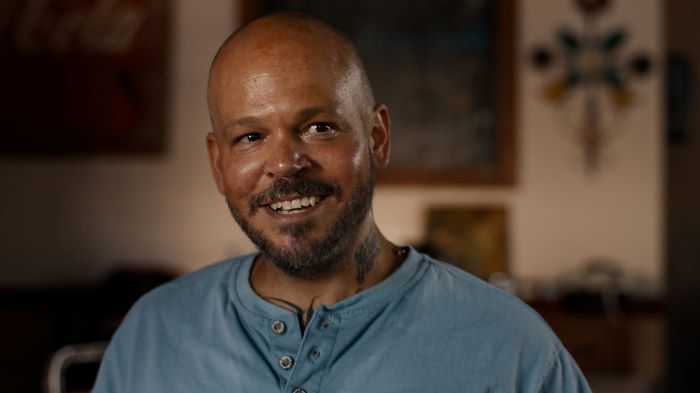![]() In her splendid directorial debut, Alessandra Lacorazza delves into the personal experiences of her childhood and adolescence to create a naturalistic and profoundly honest film about the tension in the parent-child relationship, where children discover parents aren’t infallible and grow up to judge them for their mistakes.
In her splendid directorial debut, Alessandra Lacorazza delves into the personal experiences of her childhood and adolescence to create a naturalistic and profoundly honest film about the tension in the parent-child relationship, where children discover parents aren’t infallible and grow up to judge them for their mistakes.
What initially sets apart this Mexican-American filmmaker’s autobiographical approach is its structure, told patiently over four (non-consecutive) summers across 20 years. The decision is far from arbitrary: It’s the story of a divorced father who only gets to spend time with his daughters during summer vacations. We can only imagine the story before (and after) these seasons that define the lives of two girls growing up in California and visiting Las Cruces, New Mexico, for just a few months each year. Six actresses portray Violeta (Dreya Castillo, Kimaya Thais Limon, and Lío Mehiel) and Eva (Luciana Elisa Quiñones, Allison Salinas, and Sasha Calle) in various stages of childhood, adolescence, and adulthood. The characters are so carefully written and transparently performed that the transitions between summers feel as though only two actresses were cast and their growth documented in the style of Richard Linklater’s Boyhood (2014).
Vicente, the father, is played by René Pérez Joglar, better known across Latin America as the singer and rapper Residente. He’s one of the most famous figures in contemporary Latin pop culture, and here he has modestly crossed over in language and artistic discipline as a serious actor. Since this is a character-driven story, the script demands nuances from its cast, who must reflect a wide range of emotions shaped by the passage of time. Pérez Joglar embodies Vicente as a father and man in constant flux, caught between his desires to be a better person (he wants to go back to school, he strives to ensure his daughters have a good time) and the contradictions of his behaviors and vices (drinking a couple of beers more than he should, his often stubborn and impulsive behavior). The result is fascinating. In his acting debut, the singer is both a revelation and makes us imagine the possibility of a fruitful alternative career.
Since it’s an autobiographical recollection, the director seems more interested in a quiet exploration, where telling her own story involves understanding who her father was, while examining and embracing the pain and joy of singular memories. There are many concrete elements: the characters’ Latino heritage, with Spanish and English spoken interchangeably; Violeta’s probable transgender identity; and the Southwest setting. This specificity becomes a mirror of universal family experiences.
Honest and vulnerable, Vicente is constantly trying to connect with his daughters, eager to be admired and loved by them. When he teaches his eldest, now teenage daughter how to smoke marijuana, he attempts to be a cool dad, but also someone concerned with earning her trust and guiding her away from dangerous, unsupervised paths, perhaps those he once took. Each summer brings a new lesson, with different attempts to strengthen the bond with his daughters, but not always successfully. One summer, only Eva visits her father, although we see her accompanied by Violeta again in the next one.
Adult Violeta is portrayed by transgender actor Lío Mehiel, best known for starring in the queer drama Mutt last year. Lacorazza’s film presents a casual portrayal of gender identity that doesn’t make it a source of trauma or conflict. Instead, it broadens our understanding of the parent-child relationship and how it evolves. Through small, unspoken details, the audience is invited to reflect on these personal experiences and fill in the intentional gaps with singular interpretations.
Lacorazza has made one of the essential directorial debuts of the year. With a disarming and moving simplicity, In the Summers is a slice of life about the universal struggles of being a parent, having one, and reconciling vastly different experiences. It offers a gentle gaze, a compassionate and forgiving perspective, with the common understanding that when faced with the immense responsibility of raising a human being, most parents did the best they could with the little they knew.







Leave A Comment